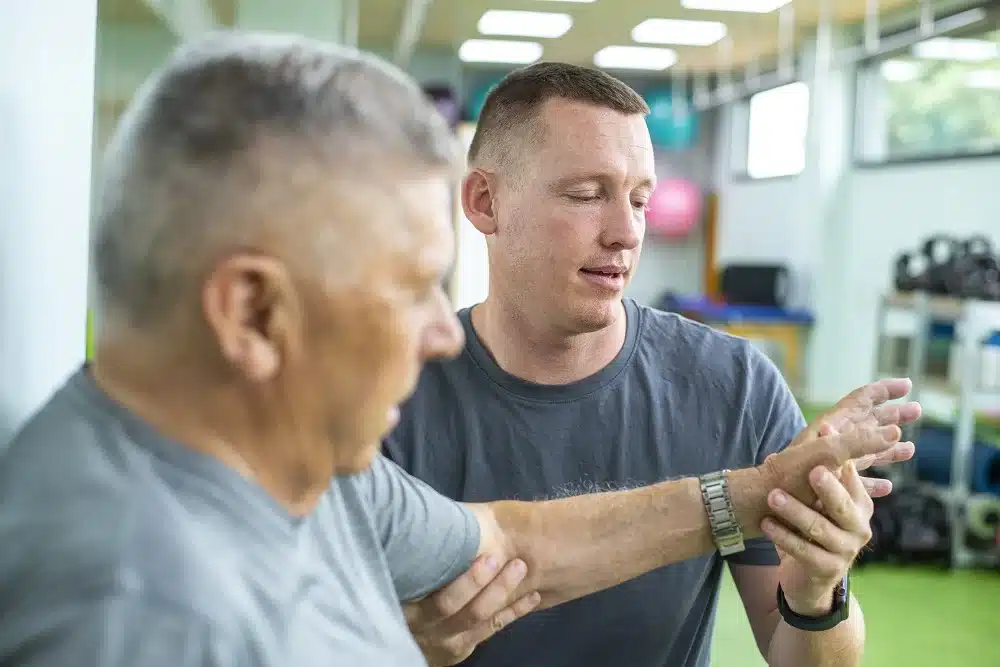Imagine this: a patient who has suffered a stroke and, in his search for answers to his recovery, comes across the enigmatic “FAST Method”. What exactly is it?
How can it change the road to rehabilitation after an event as shocking as a stroke? Join us on this journey to discover the power of the FAST Scale and its importance in neurorehabilitation.
How does the FAST Scale work?
The FAST Scale, which is an abbreviation for “Functional Assessment in Stroke Scale”, is a critical tool in the world of neurorehabilitation.
It is not simply a method, but a detailed guide to assessing and improving function after stroke.
The FAST Scale is based on a detailed assessment of the patient’s neurological and physical functions after a stroke.
It is used to measure the severity of brain damage and plan rehabilitation accordingly.
The scale ranks the patient on a scale of 1 to 7, according to their level of dependency and disability. The lower the number, the better the expected recovery.
Benefits of the FAST Scale
Personalisation of Rehabilitation: The FAST Scale allows healthcare professionals to tailor rehabilitation treatment to the specific needs of each patient.
Improved Prognosis: With an accurate assessment, a more reliable prognosis can be made about a patient’s recovery after a stroke.
Treatment Efficiency: The FAST Scale ensures that resources are used efficiently and that patients receive the care they need.
What is the FAST Method and how can it help in stroke recovery?
Understanding the FAST Scale is a crucial step, but how is it applied in practice?
This is where the FAST Method, a comprehensive approach to neurorehabilitation, comes in.
This method uses the information gathered through the FAST Scale to develop an individualised treatment plan.
Each patient is unique, and the FAST Method recognises this. The treatment plan is tailored to the specific needs of each individual, taking into account their limitations and recovery goals.
This may include physical, occupational and speech therapy, as well as other medical interventions and complementary therapies.
Recovery after a stroke is an ongoing process. The FAST Method is not limited to the initial phase of treatment; it adapts as the patient progresses through recovery.
Health professionals constantly review the FAST Scale to ensure that the treatment remains effective and adjusts to the patient’s changing needs.
Why is the FAST Method Important in Neurorehabilitation?
Neurorehabilitation after a stroke is a complex challenge. This is where the FAST Method shines.
This approach not only improves patients’ quality of life, but can also reduce long-term health care costs by accelerating recovery.
The personalised approach of the FAST Method allows for faster and more effective recovery.
Patients can regain motor, cognitive and functional skills more efficiently.
Effective rehabilitation can decrease patients’ long-term dependence on medical care and support services, which in turn can reduce associated costs.
Conclusion
The FAST Method and the FAST Scale represent a powerful combination in neurorehabilitation after stroke.
They provide a roadmap for recovery, taking into account the uniqueness of each patient.
In a world where medical care is increasingly patient-centred, these approaches are crucial to ensure effective recovery.
In this article, we have explored what the FAST Method is, how it works and why it is so important in neurorehabilitation.
When it comes to recovery after stroke, personalisation is key, and the FAST Scale and the FAST Method are essential tools in this quest.
Leave us your data to start your treatment







